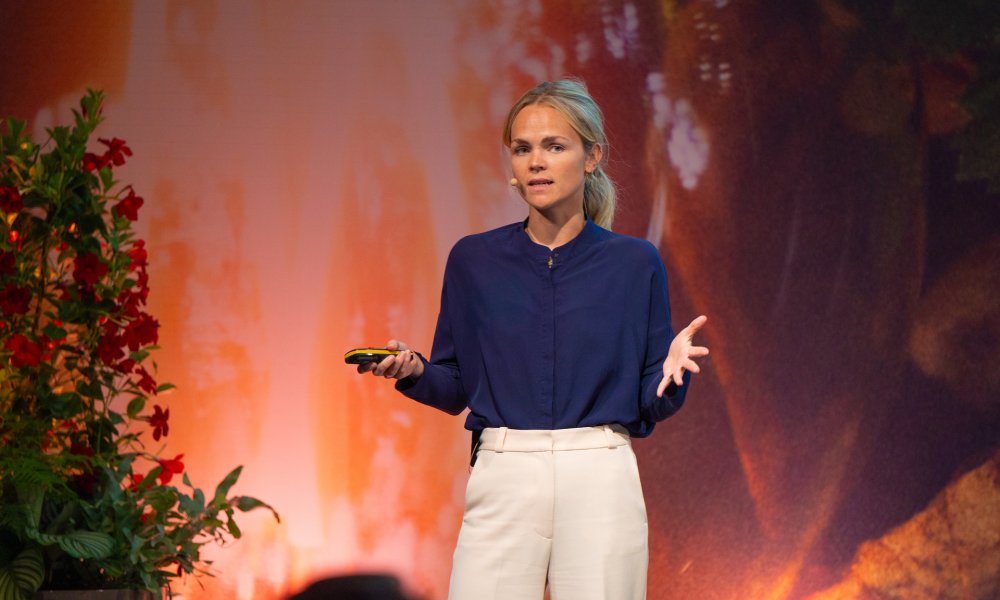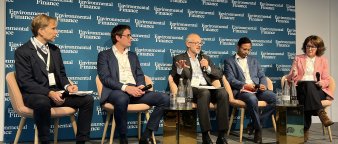Despite not investing in the 'Magnificent Seven,' which were the major drivers of the S&P 500, Storebrand Equal Opportunities had a positive relative return in 2023. Can you tell us more about that?
Absolutely. The "Magnificent Seven" consists of companies like Nvidia, Tesla, Meta, Apple, Amazon, Microsoft, and Alphabet. Their stocks surged last year, largely driven by enthusiasm for artificial intelligence. For Storebrand Equal Opportunities, these companies currently lack products and services that align with the fund's investment themes. Despite opting not to invest in these companies, we managed to achieve an absolute return of 30.3 per cent and a relative return of 4.4 per cent in 2023.
Duolingo, one of the top contributors to the portfolio last year, is an educational technology company that has successfully integrated AI in its products and services. The company collaborated with ChatGPT in March to incorporate AI into their learning methods. Along with AI, cybersecurity was one of the big "tech trends" last year. Our cybersecurity stocks, Crowdstrike, Palo Alto, and Okta were among the best positive contributors to the portfolio return in 2023. With increasing digitization, significant and serious cyberattacks, the use of generative AI, and geopolitical tensions, cybersecurity has become a top priority for companies, despite higher costs and inflation.
Do you see challenges in finding profitable solution companies?
We seek out companies that we believe can address specific UN Sustainable Development Goals (SDGs). Our goal is to invest in companies that not only yield financial returns but also have a positive societal impact. We strongly believe that companies contributing positively to society can also generate financial returns. We invest significant time in researching companies at a thematic level, to ensure we avoid those engaged in greenwashing or merely claiming to be sustainable. Bigger companies often have the resources to publish glossy sustainable reports. Our job is to make sure that we avoid these types of companies and identify those that actually have the potential to deliver positive societal impact.
What other driving forces have influenced the fund's performance?
Connectivity forms the foundation of the modern digital economy and access to digital services is a fundamental theme in the fund. Internationally, several governments have launched initiatives to ensure access to digital services and the internet. An example is India, where the government has ensured that all citizens have access to a digital identity as part of the country's significant push for digital development. American Tower is an example of a company in our portfolio that has had a positive development, largely due to its international diversification in communication infrastructure.
Several of the portfolio companies exposed to digital payments have performed well in 2023. One example is MercadoLibre, a Latin American e-commerce provider and fintech business, was among the best performing companies of the fund in 2023. MercadoLibre has had a first-mover advantage in Latin America and have been able to stay ahead of regional and overseas challengers.
How do you view growth opportunities in digital payment solutions?
The increasing use of digital payment methods globally has created opportunities, especially in emerging markets where access to financial institutions is challenging. The financial services market in the African continent, for example, is expected to grow by 10% annually until 2025. This creates growth opportunities for companies like Visa, which recently announced a USD 1 billion investment in Africa over the next five years.
The fund focuses on addressing societal inequalities by providing better access to digital, financial, and health-related services. Can you tell us more about the last-mentioned investment theme?
Access to health services is prominently featured in the SDGs, and several are potential investment cases. The covid-19 pandemic has magnified existing weaknesses and gaps in health care systems around the world, particularly in developing countries. And this is really a gender issue as well because women’s symptoms and health problems are under-researched, leading to many women not receiving the appropriate treatment.
The discussion of women's health became even more relevant after the repeal of the law protecting women's right to abortion in the United States. The increase in research and growth in the number of companies in the women's health sector, have sparked increased interest from investors.
One example of the impacts for women’s health, is the recent breakthrough when Australian researchers made a significant step forward that could change the treatment of endometriosis, thereby improving the health of women living with this painful disease. Globally, up to 10% of women are affected by Endometriosis.
Finally, the fund focuses on addressing societal inequalities while the world grapples with a far-from-peaceful existence. Globally, we are facing a super election year, with almost half of the world's population in over 40 countries going to the polls. What do you think we will see at the end of 2024?
I wish I had a confidently positive answer to that question. At the end of 2024, I hope we see governments that prioritize investments in peace, climate transition, and addressing significant inequalities. And not least in countries going to the polls that are also some of the economically weakest, like South Sudan and Mozambique. Some elections are free, others more or less predetermined. In total, the countries going to the polls this year represent over 40% of the world's GDP. But there is no doubt that it is a year filled with uncertainty. Regardless of the outcome, there will always be forces working for positive values, whether they come from politics or the business sector.
This is marketing material for professional investors only, in countries where we have marketing permission for the fund. Investments involve risk.
Return since inception (2021-11-29): -4,83 as of 2024-01-17. Benchmark index MSCI ACWI for the same period: 16,66







